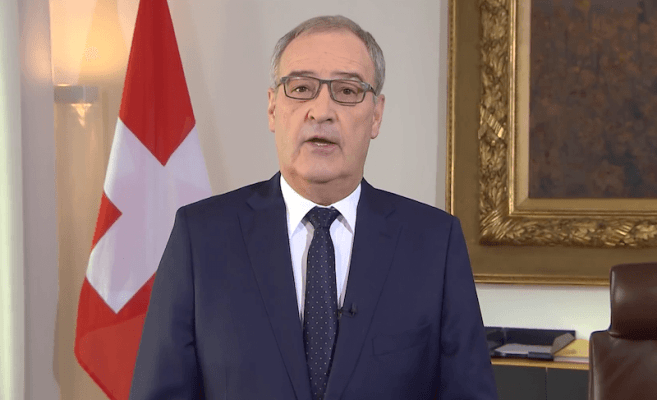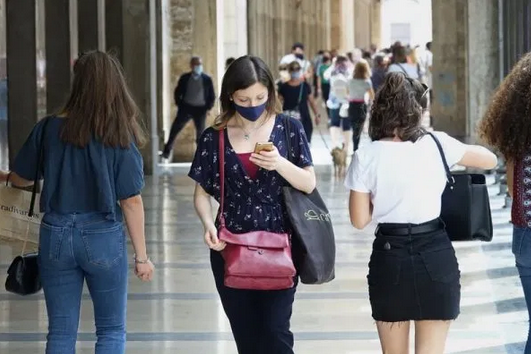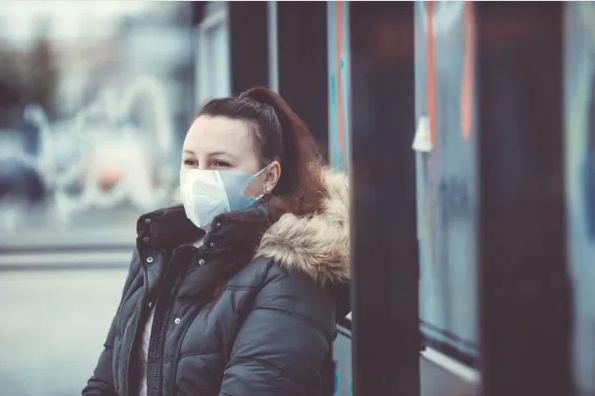Swiss president Guy Parmelin According to RTS, Guy Parmelin, Switzerland’s president since 1 January 2021, told the newspaper SonntagsBlick, that between July and September the government underestimated the pandemic. “We thought we could contain the virus but in reality we were far from doing so”, he said. Not only politicians but also many specialists were surprised by the sudden and rapid rise of Covid-19 cases. In addition, the president said that coordination between cantons and the federal government wasn’t alway optimal. It wasn’t and still isn’t easy, he said. Every day the health crisis brings something new, said Parmelin. No one, not even the scientific community can tell politicians what measures will work in three or four weeks, he said, referring to
Topics:
Investec considers the following as important: 3.) Health, 3) Swiss Markets and News, Coronavirus Geneva, Covid-19 Switzerland, Editor's Choice, Featured, health, newsletter, Politics
This could be interesting, too:
Investec writes The global brands artificially inflating their prices on Swiss versions of their websites
Investec writes Swiss car insurance premiums going up in 2025
Investec writes The Swiss houses that must be demolished
Investec writes Swiss rent cuts possible following fall in reference rate

Swiss president Guy Parmelin
According to RTS, Guy Parmelin, Switzerland’s president since 1 January 2021, told the newspaper SonntagsBlick, that between July and September the government underestimated the pandemic.
“We thought we could contain the virus but in reality we were far from doing so”, he said. Not only politicians but also many specialists were surprised by the sudden and rapid rise of Covid-19 cases.
In addition, the president said that coordination between cantons and the federal government wasn’t alway optimal. It wasn’t and still isn’t easy, he said.
Every day the health crisis brings something new, said Parmelin. No one, not even the scientific community can tell politicians what measures will work in three or four weeks, he said, referring to the new more contagious strain discovered in the UK.
Last week, Alain Berset, Switzerland’s health minister, made a similar admission of unwarranted optimism over the summer.
Excessive optimism was also present in Switzerland during the first wave of the pandemic. On 24 February 2020, Daniel Koch, Switzerland’s head of communicable diseases at the FOPH at the time, announced that the mortality rate of SARS-CoV-2 seems to be fairly similar to the seasonal flu, before expressing uncertainty around the estimation. In an internal memo of the same date, Koch wrote that the virus is not going to spread as easily as the flu. These statements contrasted starkly with other information available at the time, in particular rapidly rising cases in Italy and 2,500 deaths in Wuhan, despite a strict lockdown.
Over the course of the pandemic differences between nations that acted more preemptively and decisively and those that waited and hoped have widened. Deaths per 1,000,000 in countries like Australia (35), Japan (29), South Korea (19), New Zealand (5) and China (3) where responses were fast and decisive are significantly lower than in Switzerland (910) and much of the rest of Europe where responses were slower. The European nations of San Marino (1,825) and Belgium (1,696) have Europe’s highest rates. In Taiwan, a nation of 24 million that acted preemptively, only 7 people have died from the disease, a rate of 0.3 per 1,000,000.
In addition, it appears there is no clear economic trade off to a strong preemptive pandemic response. GDP in Taiwan (+2.4%) and China (+1.9%) grew during 2020, according to estimates. Some other nations with low Covid-19 death rates, such as South Korea (-1.1) and Norway (-1.7%), also economically outperformed most of the rest of the world in 2020, although this was not always the case. The economies of Japan (-5.3%) and Australia (-4.1%), which both acted decisively, were battered in 2020. GDP growth for 2020 is estimated to be -7.5% in the Euro area and -3.0% in Switzerland.
However, the GDP impact of the pandemic also depends on the structure of an economy and what measures are implemented. New Zealand, which experienced a very low Covid-19 death rate, but which relies heavily on foreign tourists and students for a significant portion of its revenue, saw its GDP decline by more than 4% in 2020. And, unlike Taiwan and South Korea, New Zealand’s government was slow to act. By the time it responded it did not know who was infected, which led it to impose a strict nationwide lockdown, something much of East Asia avoided. For example, Taiwan started scanning and testing arrivals in December 2019. New Zealand started several months later.
Tags: Coronavirus Geneva,Covid-19 Switzerland,Editor's Choice,Featured,Health,newsletter,Politics








